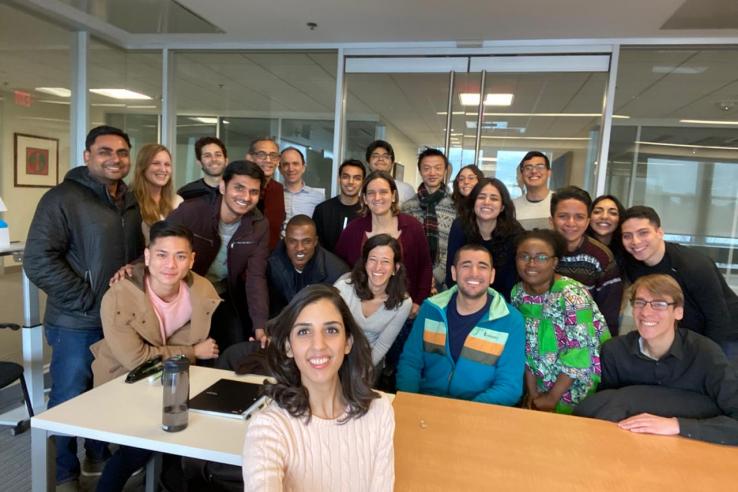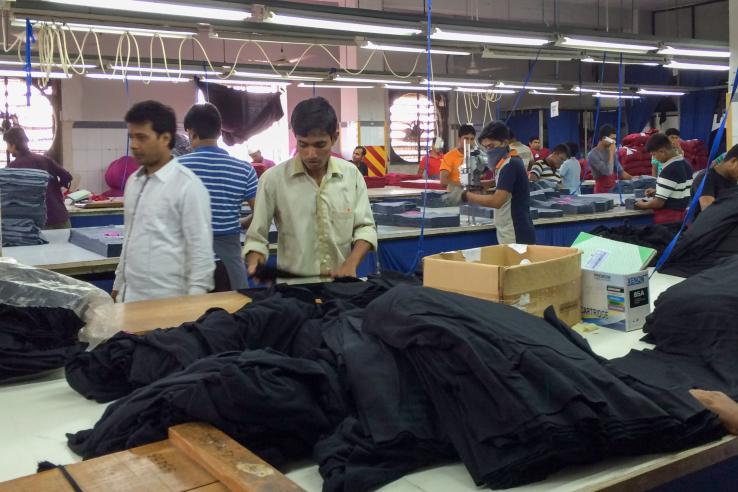Displaying 1126 - 1140 of 8069
Update
J-PAL updates
J-PAL's September 2020 newsletter celebrates the graduates of the Data, Economics, and Development Policy master’s program, welcomes new affiliates, and looks at how evidences can inform responses to the COVID-19 crisis.
Evaluation
Researchers evaluated the impact of a business training intervention, alone and combined with a cash grant, on the income and other business outcomes for self-employed women in Sri Lanka. Researchers found that business training alone was not sufficient to generate business growth, but when combined with a US$129 cash grant, the business training program appeared to boost profits in the short-term.
Evaluation
A researcher partnered with the Alliance for Bangladesh Worker Safety, a consortium formed by US multinational companies, to evaluate the impact of privately enforcing local labor laws on garment factories in Bangladesh. Enforcing the legally-required creation and operation of workplace safety committees increased factories’ compliance with the labor law and some measures of factory safety, without reducing factory efficiency. These effects persisted in the long run and were stronger among factories with good managerial practices.
Evaluation
In partnership with a rural district in Eastern Uganda, researchers are conducting a randomized evaluation to study whether rewarding top-performing teachers with a future posting of their choice incentivizes teachers to improve their attendance and the quality of their teaching.
Evaluation
Employers often rely on subjective performance evaluations by supervisors to gauge the performance of workers–particularly in the public sector, where civil servants’ work performance is hard to measure. However, relying on the opinions of local supervisors could cause subordinates to prioritize pleasing their supervisors rather than focusing on productive tasks and work responsibilities. Researchers conducted a randomized evaluation testing the impact of two alternative subjective performance evaluation schemes on subordinates’ work performance.
Evaluation
In Pakistan, researchers are evaluating the impact of using mobile phones to directly connect politicians with voters and give voters the opportunity to provide real-time feedback to their elected representatives.
Evaluation
Researchers will investigate whether mobilizing local political leaders to strengthen the link between local collections and urban services can increase citizens’ willingness to pay for services, improve service delivery, and ultimately revitalize the social compact.
Person
Amanda Dawes joined J-PAL LAC in 2011 and holds a master’s degree in Economics from the Pontificia Universidad Católica de Chile. She is currently working on an evaluation of the Enseña Chile program, which seeks to improve educational opportunities by enlisting promising future leaders in the...
Evaluation
Researchers examined the impact of race concordance (when the race of a patient matches that of their physician) and incentives on the take-up of preventive health services by Black men. Results indicate that physician race concordance significantly boosted demand for all preventive health services, and especially for more invasive tests.
Person
Michela Carlana is an Associate Professor of Public Policy at the Harvard Kennedy School. Her research focuses on the impact of exposure to gender stereotypes on performance in mathematics, self-confidence, and track choice of adolescents, as well as topics related to immigration.
Person
Kyle Emerick is an Associate Professor of Economics at Tufts University. He focuses on Development Economics, with a particular emphasis on the Agricultural sector.
Event
J-PAL North America’s State and Local Innovation Initiative virtual webinar series “Charting the Next Decade of Evidence Generation in State and Local Government” will explore pressing policy and research priorities facing state and local governments. Speakers in the series will discuss how state...





